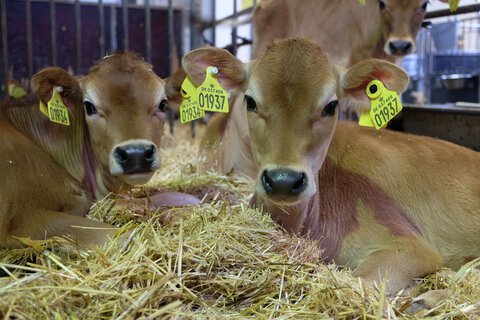With the aim of improving milk production in Uganda, VikingDenmark has entered into a long-term partnership with the National Agricultural Research Organisation (NARO) in Uganda. Two vets visited Denmark in October to choose the 50 Jersey heifers that will form the foundation stones of the project, designed to give a genuine kick start to milk production in Uganda.
By VikingDenmark
“We are looking forward to a long-term partnership with Viking”
So says Professor Justus Rutaisire, one of the two vets who came to Denmark to choose Jersey heifers for a new project in Uganda, focused on optimising milk production. As the local cows don’t produce enough milk, Professor Rutaisire has been on the lookout for a different breed that can also tolerate the heat in Africa. The choice fell on VikingJersey and 50 animals have now been sent to Uganda. The project has also bought semen and embryos from Viking, and the plan is for NARO to act as the Viking distributor in East Africa.

